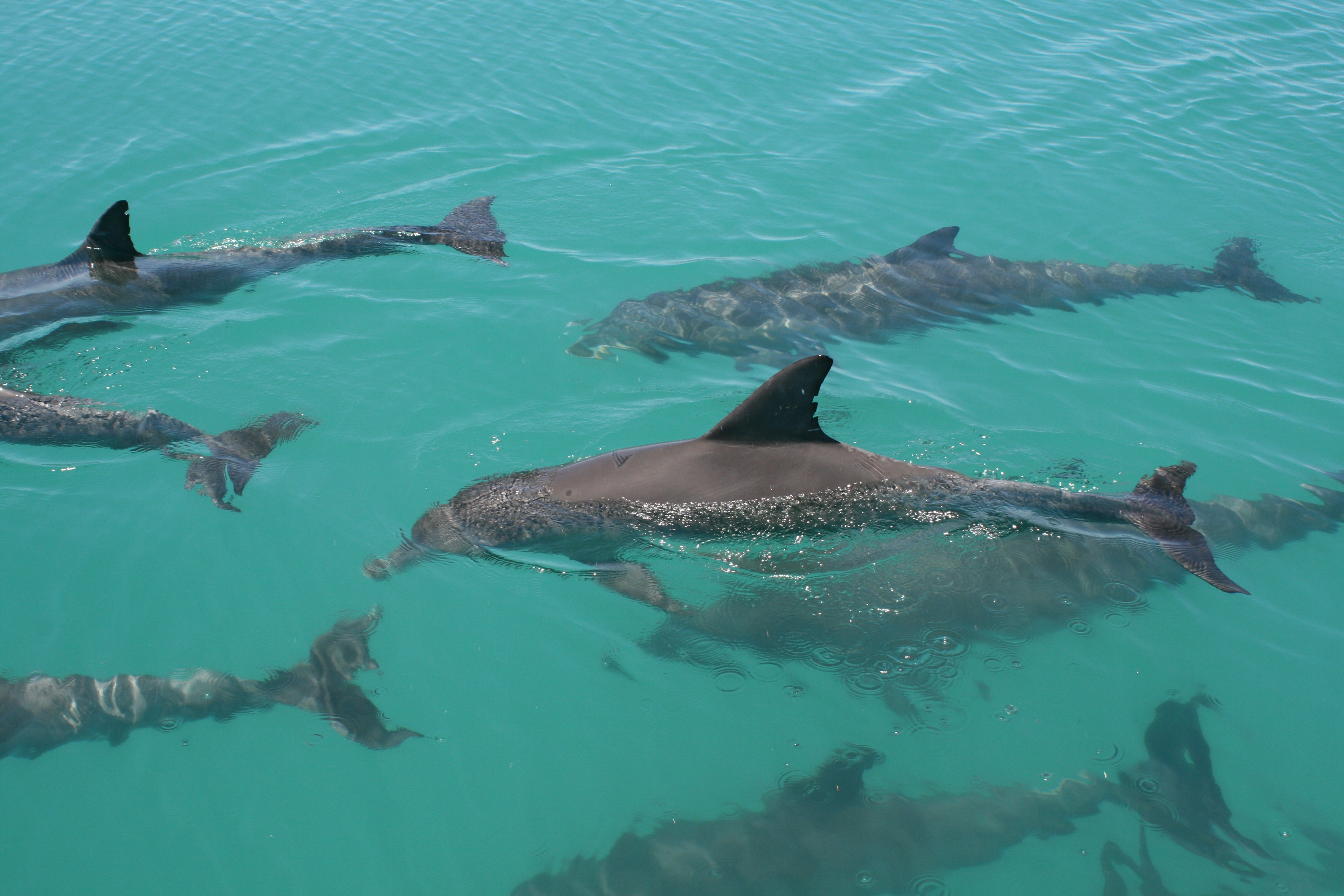To better understand and protect the dolphins and wildlife in Monkey Mia and Shark Bay through research
In 1982, American researchers flew half-way around the world to capitalize on a unique opportunity in a remote bay in Western Australia. There, at the Monkey Mia beach, a small group of wild bottlenose dolphins swam right into shore to be hand-fed by humans.
From these first few animals, research quickly expanded to include hundreds of Shark Bay dolphins. An extensive long-term study of the population carried out by an international team of scientists from institutions across Australia, Europe, and North America was established in 1984. Research has since expanded into multiple projects, including the Shark Bay Dolphin Project based at Georgetown University, where the long-term records of these dolphins are currently managed in a database built by a collaboration between biologist Dr. Janet Mann and computer scientist Dr. Lisa Singh.

The research now encompasses thousands of hours of systematic data collection in the field and many more in the lab. Since dolphins live such a long time, at least until their 50s, even simple facts, such as the number of calves born to a female in her lifetime, require decades of study. Hundreds of dolphins are surveyed and cataloged each year in Shark Bay. Their behavior, ecology, genetics, development, communication, social structure, predators, and prey are all being researched at Monkey Mia, making this one of the most important dolphin research sites worldwide. All of this is accomplished with minimally invasive methods- without tagging or capturing the animals.
The dolphins of Monkey Mia beach provide a unique window into dolphin society. In return, research has helped protect these dolphins by providing basic biological information and monitoring the effects of provisioning on wild animals. The research in Shark Bay has had a considerable impact on local and international management policies pertaining to dolphin-focused tourism.
Cover image: Madison Miketa






